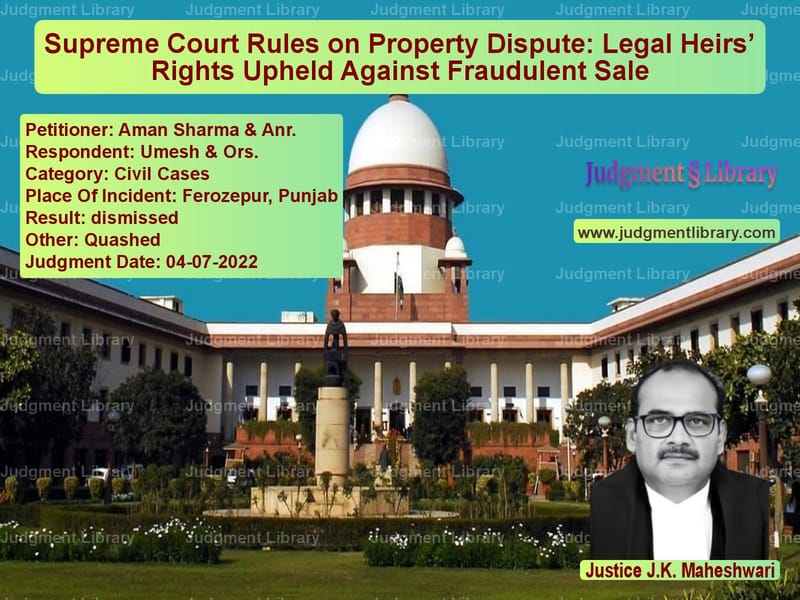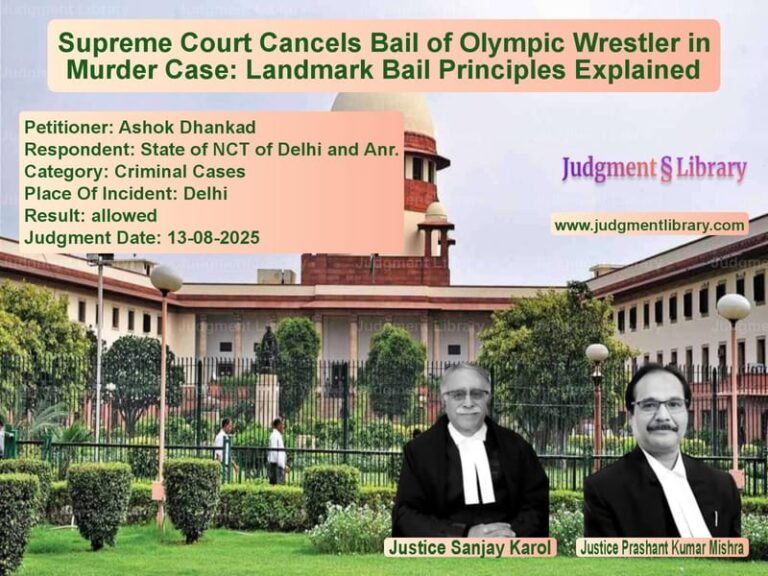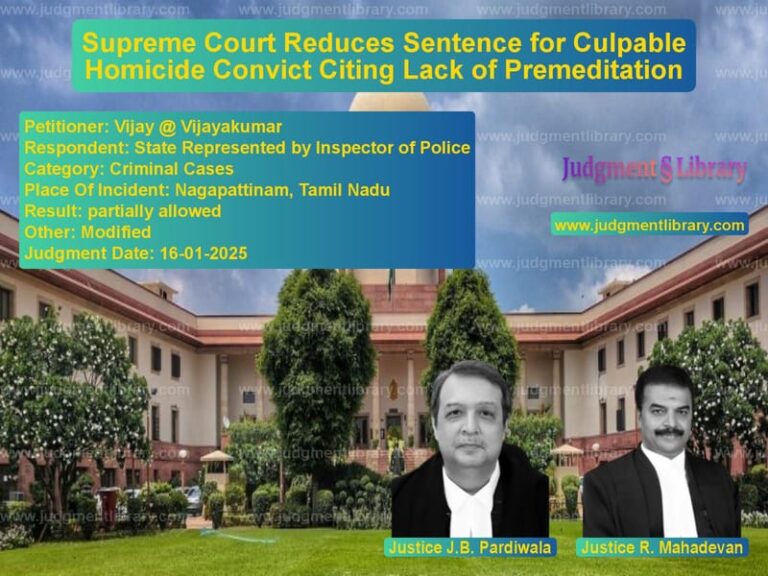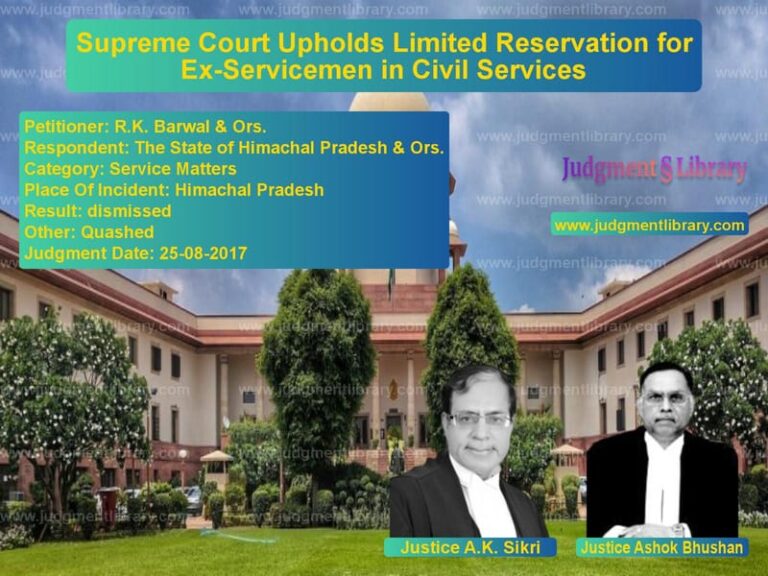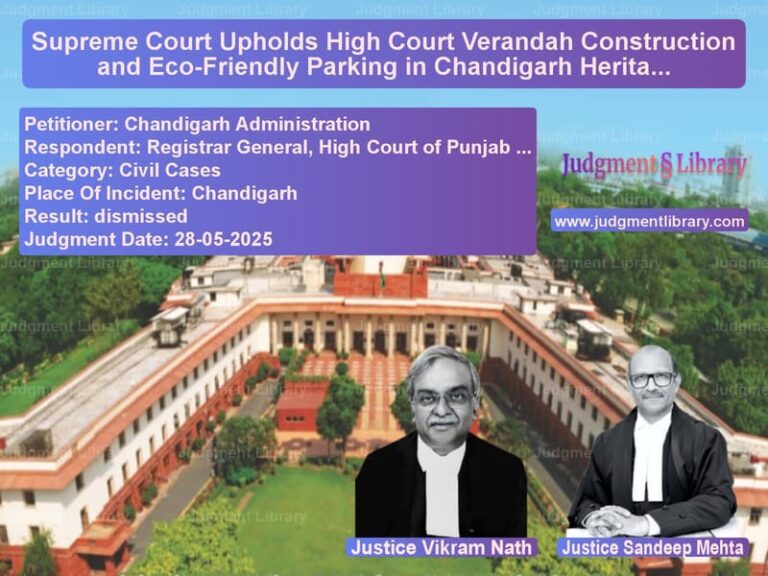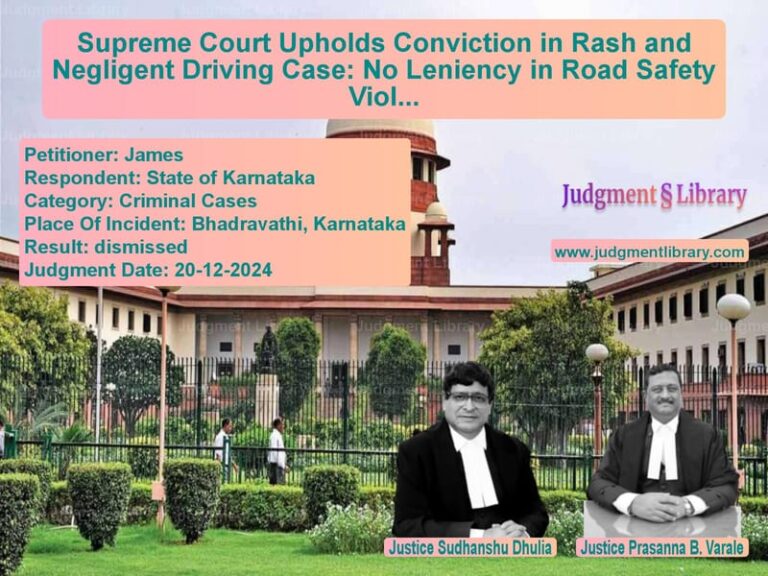Supreme Court Rules on Property Dispute: Legal Heirs’ Rights Upheld Against Fraudulent Sale
The Supreme Court of India recently ruled in the case of Aman Sharma & Anr. vs. Umesh & Ors., a landmark judgment addressing property disputes, inheritance laws, and the validity of conflicting Wills. The case primarily revolved around a contested multi-storey residential property in Mohalla Shahganj, Turi Bazar, Punjab, where two conflicting Wills created legal uncertainty regarding the rightful ownership.
Background of the Case
The dispute originated when the respondents (plaintiffs in the lower court) filed a lawsuit challenging the 2006 sale of the disputed property to Aman Sharma & Anr. The respondents claimed that they were the legal heirs of the property under a 1957 Will executed by Lt. Pt. Lahori Ram, which had passed ownership rights to his son, Krishna Kumar. Following Krishna Kumar’s death in 1997, the property was inherited by his wife, Sushila Kumari, who later transferred ownership to her daughters, the respondents in this case.
However, the appellants (defendants in the lower court) contended that they had legally purchased the property from Nand Kishore in 2006, who asserted ownership based on a separate 1975 Will executed by Lt. Pt. Lahori Ram. This created a legal deadlock, with both parties claiming ownership over the property.
Petitioner’s Arguments (Aman Sharma & Anr.)
The appellants, who had purchased the property, put forth the following arguments:
- The 1975 Will executed in favor of Nand Kishore was legally valid and enforceable.
- The 1957 Will had been overtaken by the 1975 Will, which reflected the true intentions of Lt. Pt. Lahori Ram.
- The respondents had never legally challenged the sale deed before purchasing the property, implying that they had implicitly accepted the sale.
- Municipal records, water tax, and electricity bills reflected ownership in Nand Kishore’s name for several years, proving continuous possession.
- As bonafide purchasers, the appellants exercised due diligence by verifying legal documentation before purchasing the property.
Respondent’s Arguments (Umesh & Ors.)
The respondents, legal heirs under the 1957 Will, countered with the following arguments:
- The 1957 Will was the only legally valid document, as it was executed first.
- The 1975 Will was registered three decades after its purported execution, making its authenticity questionable.
- Nand Kishore had no lawful right to sell the property since he was never granted ownership.
- The sale deed was based on fraudulent claims, and the appellants should have conducted a more thorough investigation.
- The trial court and appellate court had already ruled in their favor, reinforcing their legal claim.
Supreme Court’s Observations
The Supreme Court meticulously examined several aspects of the case, making critical legal observations:
- The 1957 Will was executed in a legally sound manner and had been followed by Krishna Kumar and his heirs without dispute.
- The 1975 Will was highly suspicious, given that it had been registered decades after Lahori Ram’s passing.
- Legal heirs’ succession rights cannot be arbitrarily displaced unless a subsequent Will is proven beyond doubt.
- The appellants had failed to undertake adequate due diligence before purchasing the property, despite red flags in ownership records.
Final Judgment
The Supreme Court ruled as follows:
- The 2006 sale deed was declared invalid, as Nand Kishore did not have rightful ownership.
- The 1957 Will remained legally binding, granting ownership to the respondents.
- The appellants could file a claim for financial damages against Nand Kishore but had no lawful claim to the property.
Implications of the Ruling
This ruling reinforces several key legal principles in property law:
- The sanctity of Wills and succession planning must be respected unless a later Will is established as authentic beyond reasonable doubt.
- Property transactions require strict due diligence to prevent fraudulent claims and disputes.
- Courts will prioritize inheritance rights over subsequent transactions that lack clear legal basis.
This ruling establishes a clear precedent for handling property inheritance disputes, ensuring rightful ownership remains protected and fraudulent property transactions are invalidated.
Petitioner Name: Aman Sharma & Anr..Respondent Name: Umesh & Ors..Judgment By: Justice J.K. Maheshwari.Place Of Incident: Ferozepur, Punjab.Judgment Date: 04-07-2022.
Don’t miss out on the full details! Download the complete judgment in PDF format below and gain valuable insights instantly!
Download Judgment: aman-sharma-&-anr.-vs-umesh-&-ors.-supreme-court-of-india-judgment-dated-04-07-2022.pdf
Directly Download Judgment: Directly download this Judgment
See all petitions in Property Disputes
See all petitions in Succession and Wills
See all petitions in Landlord-Tenant Disputes
See all petitions in Judgment by J.K. Maheshwari
See all petitions in dismissed
See all petitions in Quashed
See all petitions in supreme court of India judgments July 2022
See all petitions in 2022 judgments
See all posts in Civil Cases Category
See all allowed petitions in Civil Cases Category
See all Dismissed petitions in Civil Cases Category
See all partially allowed petitions in Civil Cases Category

